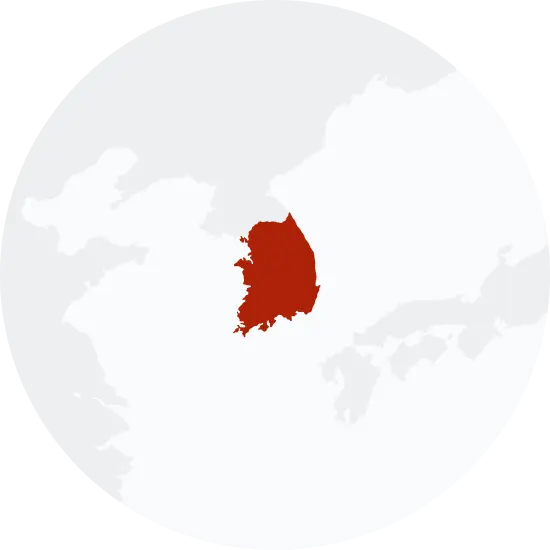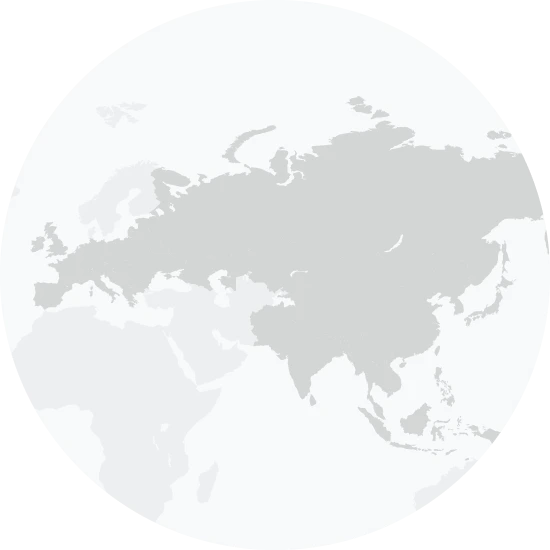Explore the Family Name Kwak
How common is the last name Kwak in the United States?
Based on the Decennial U.S. Census data, the surname Kwak has seen a significant rise in popularity between 2000 and 2010. In 2000, Kwak was ranked as the 8,279th most common surname, but by 2010 it had jumped to the 7,184th position, marking an increase of 13.23%. Similarly, the count of individuals with the surname also increased from 3,678 in 2000 to 4,652 in 2010, a growth of 26.48%. The proportion per 100k of people with this surname also rose from 1.36 to 1.58 during this period, indicating that the surname has become more widespread.
| 2000 | 2010 | Change | |
|---|---|---|---|
| Rank | #8,279 | #7,184 | 13.23% |
| Count | 3,678 | 4,652 | 26.48% |
| Proportion per 100k | 1.36 | 1.58 | 16.18% |
Race and Ethnicity of people with the last name Kwak
The Decennial U.S. Census data also provides interesting insights into the ethnic identity associated with the surname Kwak. In 2000, 80.21% of individuals with this surname identified as Asian/Pacific Islander; this percentage increased to 84.69% by 2010, showing a growth of 5.59%. The proportion identifying as White decreased from 16.88% in 2000 to 13.39% in 2010, a drop of 20.68%. Those identifying as two or more races also saw a decrease from 2.37% to 1.33%, a significant decline of 43.88%. Meanwhile, the percentage identifying as Hispanic remained almost stable, with a slight increase from 0.33% to 0.34% over the decade.
| 2000 | 2010 | Change | |
|---|---|---|---|
| Asian/Pacific Islander | 80.21% | 84.69% | 5.59% |
| White | 16.88% | 13.39% | -20.68% |
| Two or More Races | 2.37% | 1.33% | -43.88% |
| Hispanic | 0.33% | 0.34% | 3.03% |
| Black | 0% | 0% | 0% |
| American Indian and Alaskan Native | 0% | 0% | 0% |
Kwak ancestry composition
23andMe computes an ancestry breakdown for each customer. People may have ancestry from just one population or they may have ancestry from several populations. The most commonly-observed ancestry found in people with the surname Kwak is Korean, which comprises 71.3% of all ancestry found in people with the surname. The next two most common ancestries are Eastern European (8.7%) and French & German (8.6%). Additional ancestries include British & Irish, Japanese, Italian, Scandinavian, and Indigenous American.
Ready to learn more about your ancestry? Get the most comprehensive ancestry breakdown on the market by taking our DNA test. Shop 23andMe
| ANCESTRY BREAKDOWN | COMPOSITION |
|---|---|
| Korean | 71.3% |
| Eastern European | 8.7% |
| French & German | 8.6% |
| Other | 11.4% |

Possible origins of the surname Kwak
Your DNA provides clues about where your recent ancestors may have lived. Having many distant relatives in the same location suggests that you may all share common ancestry there. Locations with many distant relatives can also be places where people have migrated recently, such as large cities. If a large number of individuals who share your surname have distant relatives in a specific area, it could indicate a connection between your surname and that location, stemming from either recent ancestral ties or migration.
Based on 23andMe data, people with last name Kwak have recent ancestry locations spanning a few countries, mostly in South Korea, and Poland.
| RECENT ANCESTRY Location | Percentage |
|---|---|
| Seoul, South Korea | 71.00% |
| Busan, South Korea | 45.20% |
| Gyeongsangnam Do, South Korea | 33.30% |
| Gyeongsangbuk Do, South Korea | 30.10% |
| Jeollabuk Do, South Korea | 30.10% |
What Kwak haplogroups can tell you
Haplogroups are genetic population groups that share a common ancestor on either your paternal or maternal line. These paternal and maternal haplogroups shed light on your genetic ancestry and help tell the story of your family.
The top paternal haplogroup of people with the surname Kwak is O-F2415, which is predominantly found among people with East Asian & Indigenous American ancestry. Haplogroup O-F2415 is descended from haplogroup O-M1359. Other common haplogroups include E-M183 and O-F2859, which are predominantly found among people with European and East Asian & Indigenous American ancestry.
The most common maternal haplogroups of people with Kwak surname are: H, R, D4. These most commonly trace back to individuals of European ancestry.
 Paternal Haplogroup Origins O-M1359
Paternal Haplogroup Origins O-M1359
Your paternal lineage may be linked to the Cham
One of the many populations harboring members of haplogroup O1b1a1a1a1 is the Cham ethnic group, a group of people who speak Austronesian languages in Mainland Southeast Asia. Austronesian languages make up a language family that is extremely large and widespread, comprising over 350 million people on islands such as Madagascar, Easter Island, and many others. However, Austronesian languages are less common on mainland Asia, with a notable exception being the Chamic language. Research suggests that ancestors of the Cham people migrated from Southeast Asian islands to the mainland around the year 500 BCE, and that early Cham populations quickly began mixing with indigenous southern Vietnamese populations. As a result, the Chamic language now has words that were borrowed from languages spoken by indigenous Vietnamese people. It is likely that an ancestral Kinh population was one of the populations that mixed with the Cham people shortly after their migration to mainland Asia.
Your maternal lineage may be linked to many people of Europe and Asia
Most of Europe's most common haplogroups, including H, J, T, V and U, are offshoots of R. Some, like U, were involved in some of the earliest migrations to Europe, while others spread from the Middle East with the dawn of agriculture. These groups spread east as well, reaching Central Asia and India first with early farmers and then with Iron Age migrants. In East Asia, R gave rise to the dominant haplogroups F and B. Members of just one branch of B, B2, migrated from Siberia to the Americas after the peak of the Ice Age 18,000 years ago, where their descendants are found today. However, no other branches of R have been found in the indigenous people of North and South America.

What do people with the surname Kwak have in common?
Spoiler alert: it's complicated. People with the same last name are usually no more genetically similar than a randomly sampled group of people from the same population. That said, people with the same surname are more likely to have similar ancestries than randomly sampled individuals. The reason is the tendency of people with similar cultural or geographical backgrounds to preferentially mate with one another. That's why people who share a surname may be more likely to share traits and tendencies in common than people within the general population. Check out the percentages below to see the prevalences of tastes, habits, and traits of people with your surname compared with prevalences among 23andMe users.
Preferences
Traits

Cheek Dimples
Small indentations that appear on the cheeks when a person smiles.
"Kwak" Surname 38.5%
23andMe Users 37.6%
Habits

Sugary Drink
Drinks one or more sugary drinks per day.
"Kwak" Surname 18.5%
23andMe Users 21.1%
Are health conditions linked to the last name Kwak?
The short answer is that, if there is an association between surname and health, it's usually more about your ancestry than your name. Individuals with a given surname are no more genetically similar than the general population but often have similar ancestries. The populations of people associated with those shared ancestries often have sets of genetic variations, also known as alleles, in common. Some of those alleles are associated with a greater likelihood of developing certain diseases.
Disease variant frequency by ancestry
Disease allele frequencies in populations associated with the surname Kwak are shown below. Important Note: not everyone with a disease allele will develop these health condition


